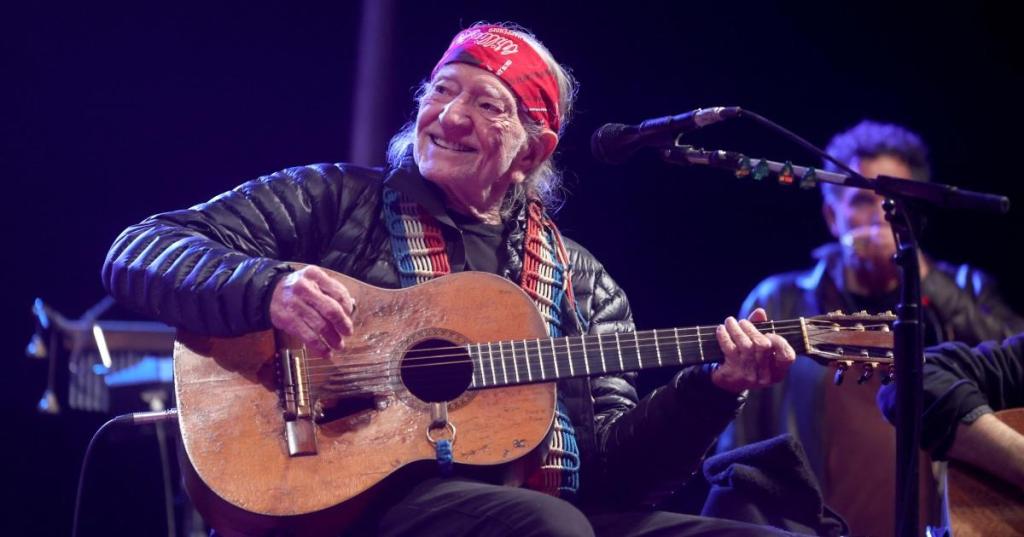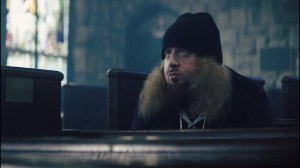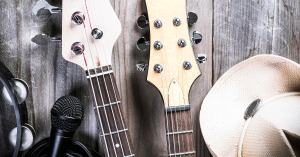Willie Nelson‘s new memoir centers on his decades-long friendship with his drummer, the late Paul English. Me and Paul: Untold Stories of a Fabled Friendship is filled with humorous tales from their time together, with Nelson detailing English’s role in helping Nelson become the legend is today. In one touching story, Nelson revealed how English saved his life when he considered suicide during his early days in Nashville.
Nelson and English met at a Texas radio station in 1955. They became lifelong friends, with Nelson even writing the 1971 hit “Me and Paul” about their relationship. They were best friends until English died in February 2020 at 87. In an excerpt from Me and Paul, published by PEOPLE, Nelson wrote that English once stopped him from taking his own life.
Videos by PopCulture.com
In Nelson’s early days in Nashville, he struggled to find success. When he reached Music City, it was the first time he lived in a big city with a huge community of singers and songwriters. The community wasn’t unwelcoming to Nelson, he wrote, but he struggled watching others succeed when he didn’t. He was not making any money from his music. He couldn’t even succeed at selling encyclopedias. So, he drank.
“The one thing I could do was drink,” Nelson wrote. “But I was hardly what you’d call a good drinker. I’d either get sullen or, even worse, get crazy and pick a fight with someone twice my size. I’m not a bad fighter, but, if you do fight, it’s best to stay well within your weight class.”
Nelson called his early days in Nashville a “definite low point,” and wrote that “depression had me in its grips.” One night, he thought about a song by Lightnin’ Hopkins about “feeling so bad until he lay his head on some lonesome railroad line and let it ease his troubled mind.” He considered doing the same.
That night, it started snowing in Nashville. He couldn’t find a railroad, so he chose Broadway to lay down in the middle of. He lay on the ground, but there was no traffic. “If one or two drivers saw me, they swerved out of the way. Was I relieved? Was I disappointed? Can’t say for sure,” Nelson wrote. “All I know is that I got up, went back to Tootsie’s, and had another drink.”
Nelson found English the next day. He was leaning on the hood of Nelson’s trailer. “It was four in the afternoon, and I was barely awake. It was the day after I’d tried to ease my troubled mind on Broadway. Paul’s timing was uncanny,” Nelson wrote. “Last night’s storm had passed and left a bright blue sky in its wake. As usual, Paul was looking sharp. Clean as a whistle. Happy as a lark.”
English said he was in Louisville the day before and thought he’d check in on Nelson before moving on to Memphis. He took Nelson to Juicy Lucy’s rib restaurant, where English introduced Nelson as the “hottest songwriter to hit Nashville since Hank Williams.” Lucy reminded Nelson that Williams also struggled in Nashville at first. English and Lucy told Nelson that it “takes time” to become a star in Nashville.
Nelson and English walked down Music Row, past the offices and recording studios. Nelson still felt down on himself, but English wanted to celebrate him just being there. “I’m thinking of how these fools are gonna feel when you start having hit songs left and right,” English told Nelson. “That’s when they’ll eat their hearts out for paying you no mind when they could have bought you for a nickel and nail.”
The two friends drank all night, and Nelson had a “monumental” hangover when he woke up. English was already gone, but his positive spirit helped. “In spite of my acting the fool at the bar the previous night, it was good being with someone who seemed to believe in me more than I believed in myself,” Nelson wrote. “He really believed in a rosy future at a time when I couldn’t afford to buy my wife a dozen roses.” English’s faith in Nelson paid off. Although Nelson’s first album wasn’t a big hit, it gave him the confidence to keep working and put him on the road to eventual success.
If you or someone you know is in crisis, please call or text 988 to reach the Suicide and Crisis Lifeline. The previous Lifeline phone number (1-800-273-8255) will always remain available.





